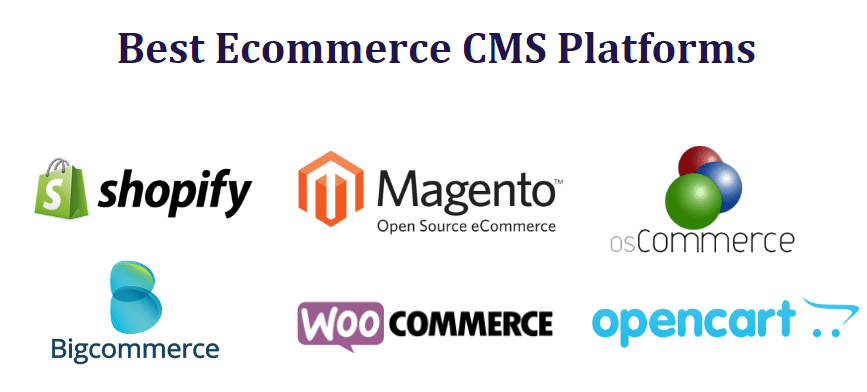
The advancement of technology has made it as easy as possible for us to create our own online web project: for example, a ecommerce or online store. It is no longer necessary to have advanced programming knowledge, to be typing code or to get too complicated with the creation of the store. Now there are the CMS.
A CMS is a content management system. It is a platform that works through a template system; In this way, we will only have to choose the template that we like the most and customize it to create a store that is to our liking. How the templates are 100% customizable, completely different projects can be created, even starting from the same template.
Taking a look at this topic we will find a lot of CMS. So… Which one is the best for our online store? Throughout this article we will see the most interesting options.
The best CMS to set up an online store
WooCommerce

WooCommerce It is one of the most used CMS throughout the world. According to the figures we handle, it is estimated that 6 out of 10 online stores use this type of infrastructure.
In this Plugin for WordPress that transforms any page into an online store. Its main advantage is the ease of use: you just have to install the plugin and follow the configuration process to have an eCommerce without having to have any idea of programming or design.
At the time it has been installed, we can add categories, products, manage payment methods and shipping costs, among other functions. Furthermore, at the level of SEO is also a good option. As it is based on WordPress, this CMS is very well optimized for our website to start rank From the first moment. And if you are looking for more detailed template style, you can contact this web designer in Valencia to create exactly what you need.
PrestaShop

PrestaShop it was a real market leader a few years ago, when WooCommerce didn't exist yet. It is still considered one of the best CMS for online stores. One of its most important characteristics is that it is Open Source and it has a large community behind it that is responsible for developing certain features and providing support to users who need it.
Another advantage of the CMS is that you have at your disposal a long series of very striking templates. Some are completely free, but there are also paid ones. This platform is perfectly synchronized with social networks and blogs to share information and thus boost traffic.
In addition, it is also a good choice for multilanguage stores: Allows you to manage multiple languages easily.
Magento
Magento is another CMS free and open source It offers extensive customization possibilities. For many it is the most powerful CMS on the market. It is the option that we will choose if we have a very extensive reference catalog and we need to avoid congestion on the web at all costs. For example, we could be talking about thousands of articles.
It is totally customizable, it is very powerful, it has the option for multilanguage, multistore and multicurrency, and it is seo-friendly. However, it is not the easiest option to handle. Its functions are somewhat complex for those who have not yet managed an online store.
And if we have advanced programming knowledge, or we plan to hire a web programmer for specific functions, Magento will allow us to work without limits.
Shopify

If you are looking for a quick solution to create your website without having technical knowledge, Shopify is for you. It is very easy to customize and we can do great things with it. It's fast, it doesn't require a server to save the page (hosting is done on the website itself), it has a carving manager (with a lot of data and reports on what happens in the store in real time) and applications for everything ( some of them are paid).
The problem with Shopify is that it is a paid CMS. You must assume a certain monthly subscription that will be more or less expensive depending on the needs of our store.
CommerceTools
It is not as popular as the previous ones, but it is an important CMS to consider. It has a flexible API, so it is compatible with many eCommerce tools. In addition, it gives us the option of doing several options at the same time using the same interface, such as executing campaigns, maintaining catalog data, having real-time access to customer information and/or order information, etc. As in the case of Shopify, it is also a payment option.
Test these 5 CMS and you will see how you find the most interesting to create your own online store.